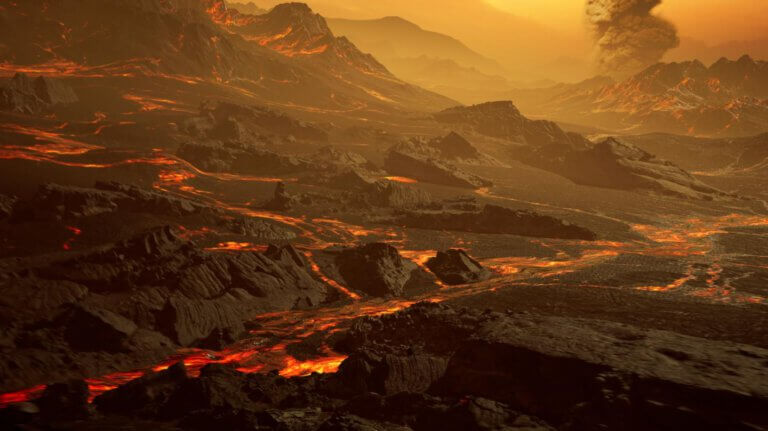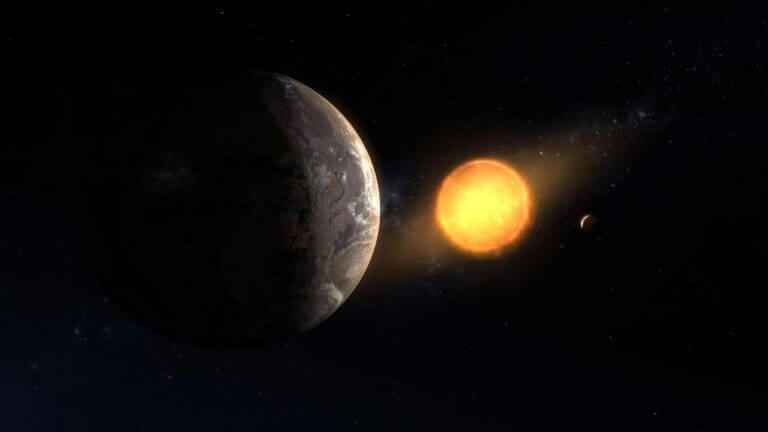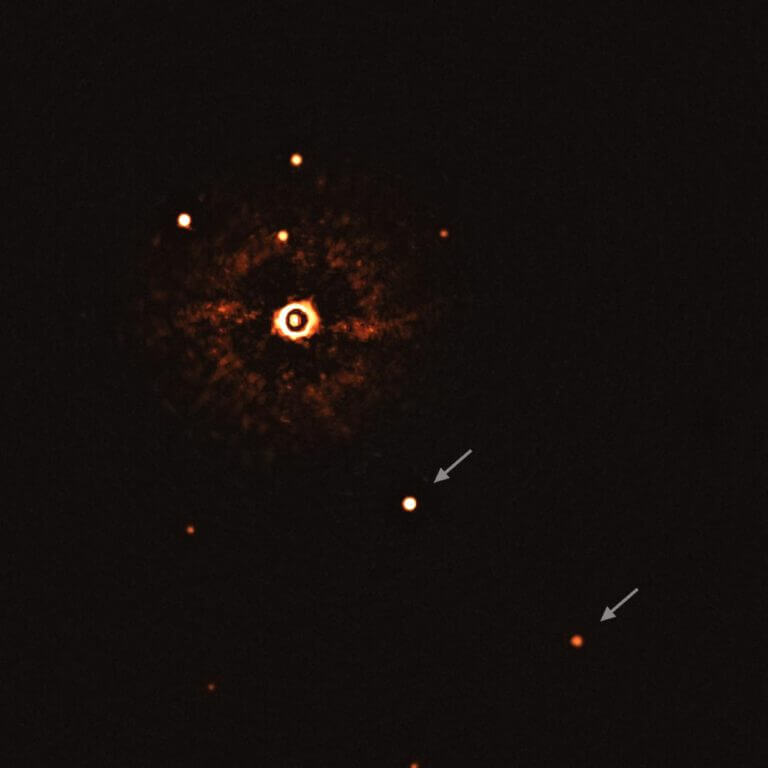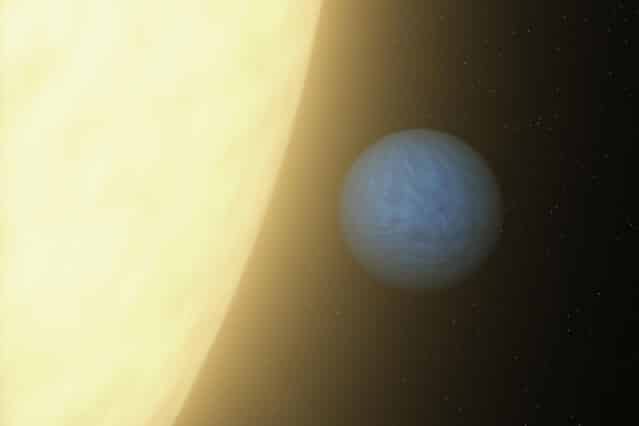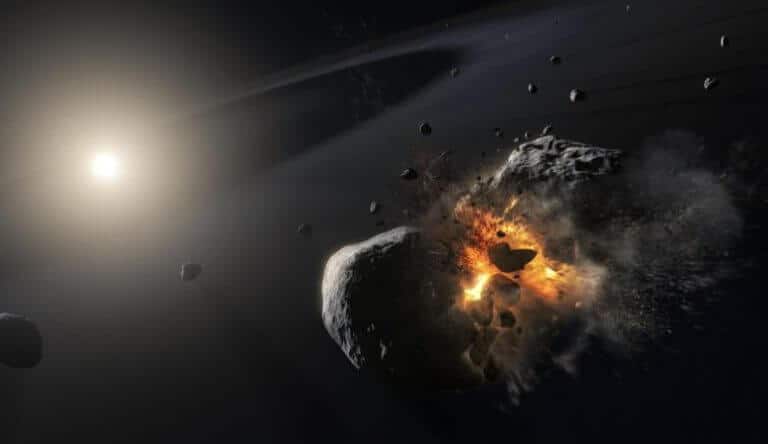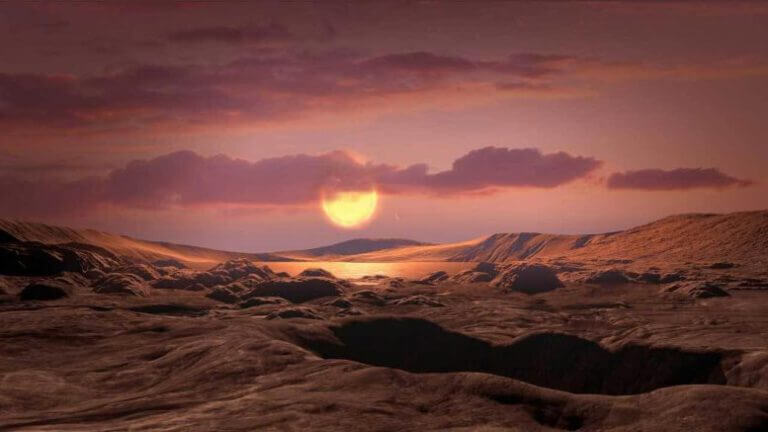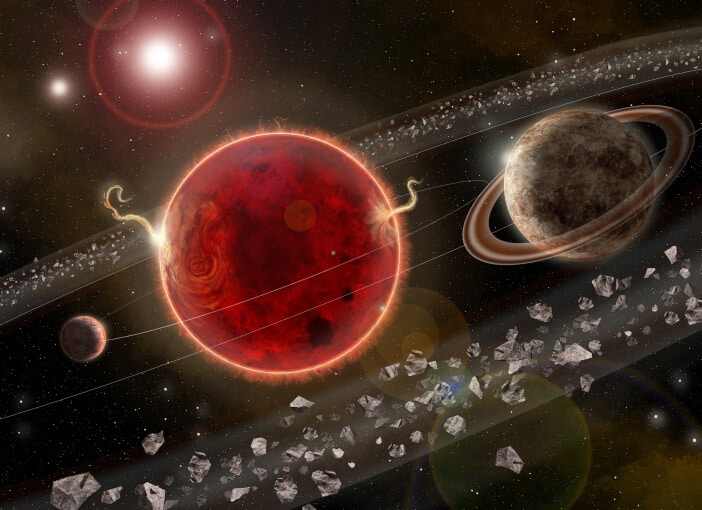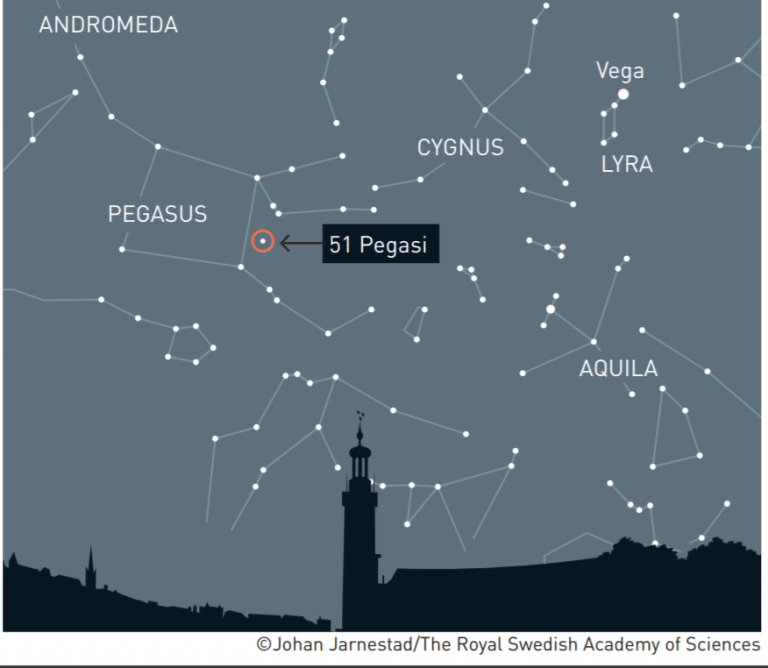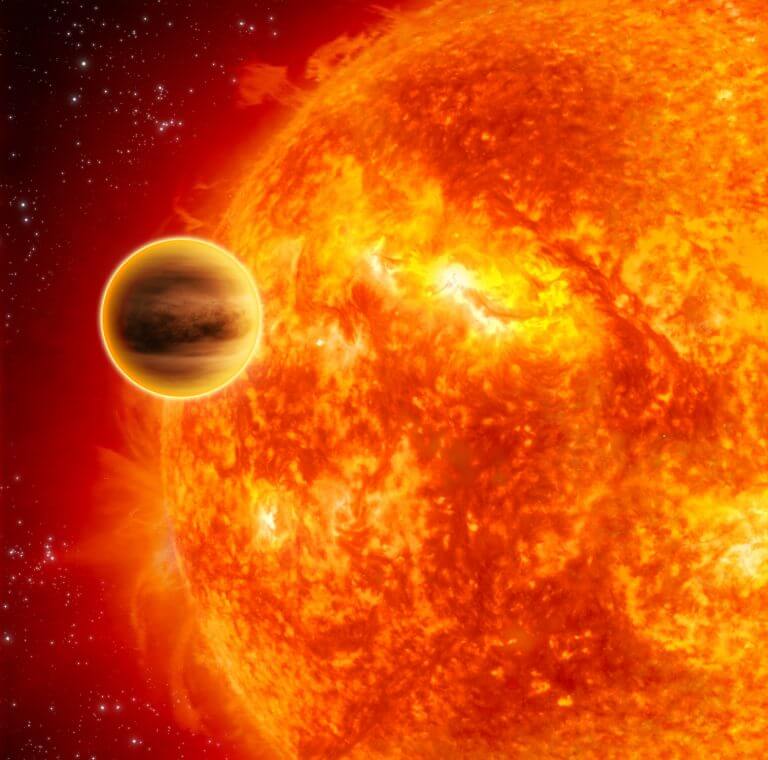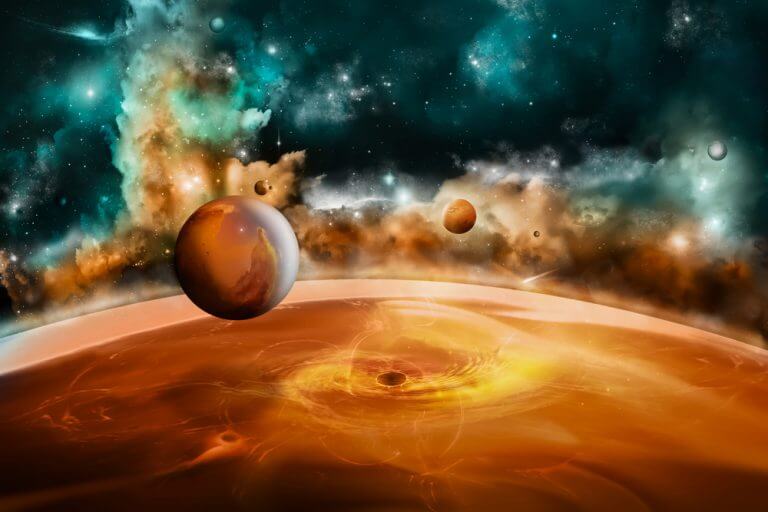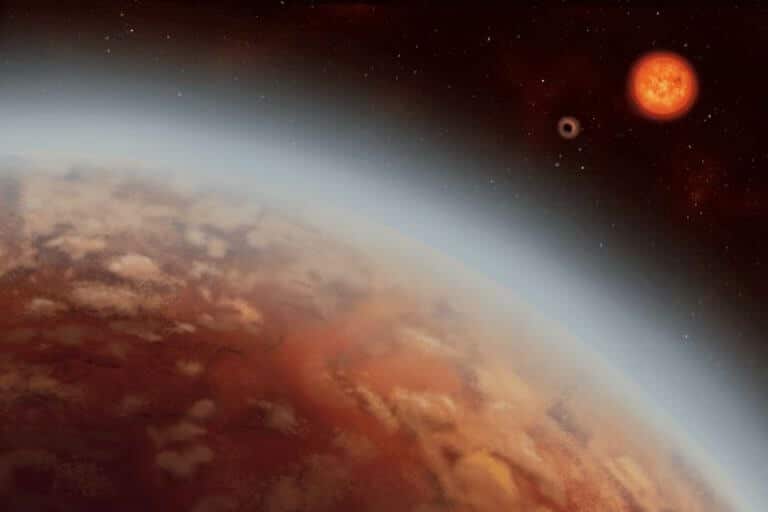Hayadan > Space and astronomy > Astrophysics > planets outside the solar system > Page 2
planets outside the solar system
- Tel Aviv University
- June 7, 2022
- One response
- Avi Blizovsky
- April 20, 2022
- 342 תגובות
Every ten years since the XNUMXs, astronomers and astrophysicists in the U.S. have gathered to compile a list of priorities for means and instruments. These surveys require scientists to think about priorities
- Avi Blizovsky
- March 27, 2022
- 6 תגובות
Given the hundreds of billions of planets in the Milky Way alone, "it's inevitable that we'll find some form of life somewhere"
- Avi Blizovsky
- December 16, 2021
- 3 תגובות
NASA's Breakthrough Initiative, Saber Astronautic, and JPL have announced Project Tolliman, a project to find out whether the nearest stars have planets that could support life
- Avi Blizovsky
- November 25, 2021
- No comments
NASA's James Webb Space Telescope is designed to pick up the haze surrounding warm sub-Neptune planets—planets that range in size from Earth to Neptune, but orbit their suns closer to the orbits of Mercury.
- Avi Blizovsky
- November 12, 2021
- 4 תגובות
Using the Gemini South telescope, with an instrument called IGRINS, the team observed the planet's thermal glow as it orbited its host star. From this instrument they gathered information about the presence and relative amounts of various gases in its atmosphere
- Avi Blizovsky
- October 15, 2021
- 5 תגובות
The potential discovery of a planet with a triangular coffee orbit has implications that strengthen our understanding of how planets form
- Dr. Moshe Nahamani
- August 6, 2021
- One response
An international team of astronomers has become the first research team to identify carbon isotopes in the atmosphere of a gas giant
- Tel Aviv University
- May 3, 2021
- 4 תגובות
In a first-of-its-kind project in space - Tel Aviv University will mediate between the two European Gaia spacecraft and NASA's Tess to enable easier and faster discovery of planets
- Dr. Moshe Nahamani
- March 25, 2021
- No comments
- Avi Blizovsky
- March 8, 2021
- 3 תגובות
A rocky planet discovered in the constellation Virgo could change the way we look for life in the universe
- The Hebrew University
- February 2, 2021
- 2 תגובות
The research focuses on a relatively new topic - the programming of biological life in planets orbiting red dwarfs * To verify the hypothesis, the James Webb Space Telescope, and the Israeli Ultrasat Space Telescope when they are launched, will be directed to the planets discovered by Vandel and his colleagues
- Avi Blizovsky
- September 25, 2020
- 2 תגובות
"If rocky planets exist around white dwarfs, we should be able to detect signs of life on them in the coming years," said co-author Lisa Keltenger, associate professor of astronomy in the College of Arts and Sciences and director of the Carl Sagan Institute.
- Avi Blizovsky
- July 27, 2020
- 6 תגובות
- Ziv Adaki
- May 17, 2020
- 11 תגובות
- Ziv Adaki
- May 6, 2020
- 343 תגובות
- Avi Blizovsky
- April 18, 2020
- 4 תגובות
- Avi Blizovsky
- February 11, 2020
- 9 תגובות
- Science site The Conversation
- January 16, 2020
- 4 תגובות
- Avi Blizovsky
- October 13, 2019
- 24 תגובות
- Dr. Moshe Nahamani
- October 9, 2019
- 10 תגובות
- Avi Blizovsky
- October 8, 2019
- 3 תגובות
- Science site The Conversation
- September 29, 2019
- 6 תגובות
- Avi Blizovsky
- September 13, 2019
- 4 תגובות
- Avi Blizovsky
- September 12, 2019
- 2 תגובות

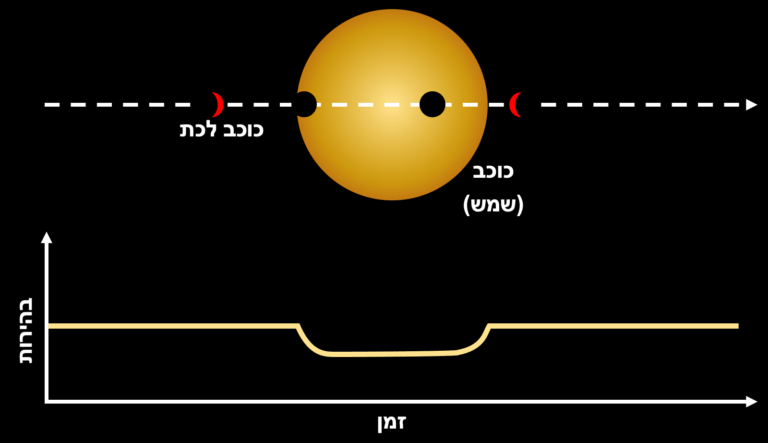
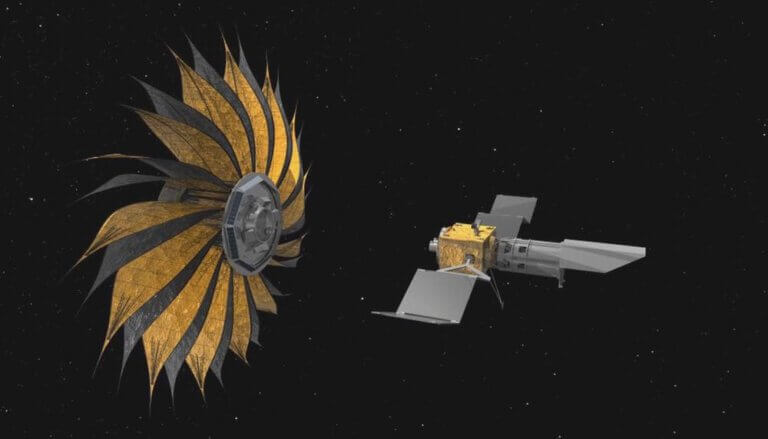
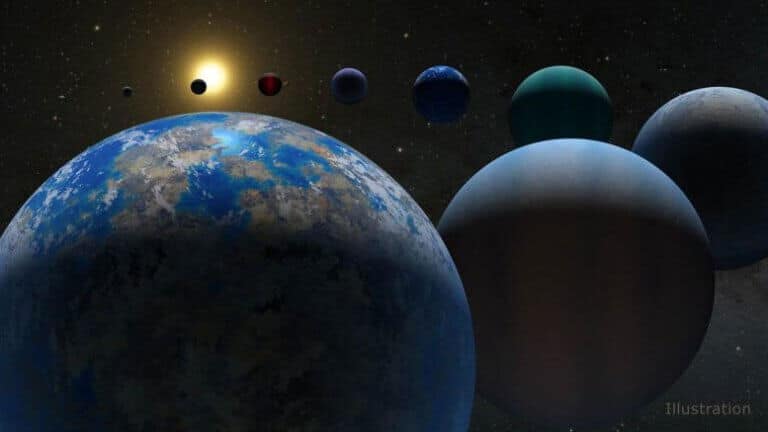
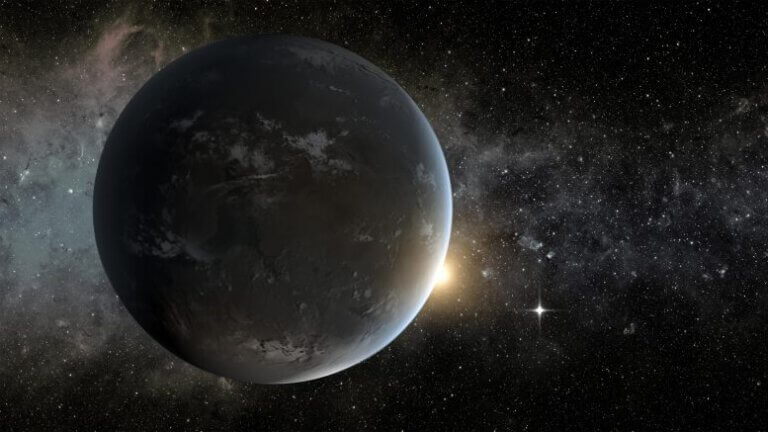

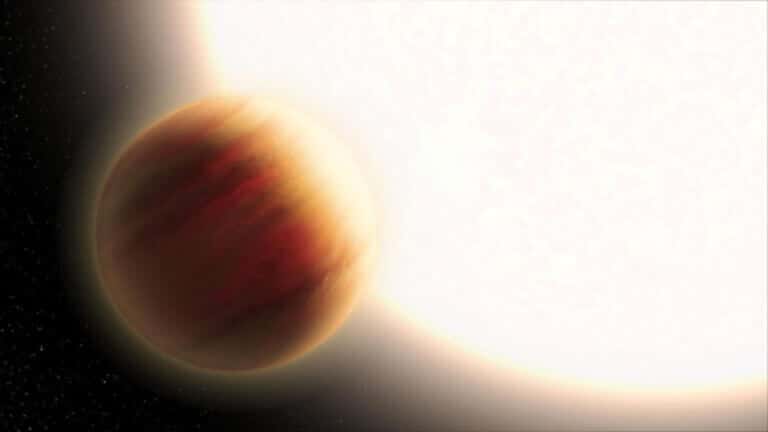
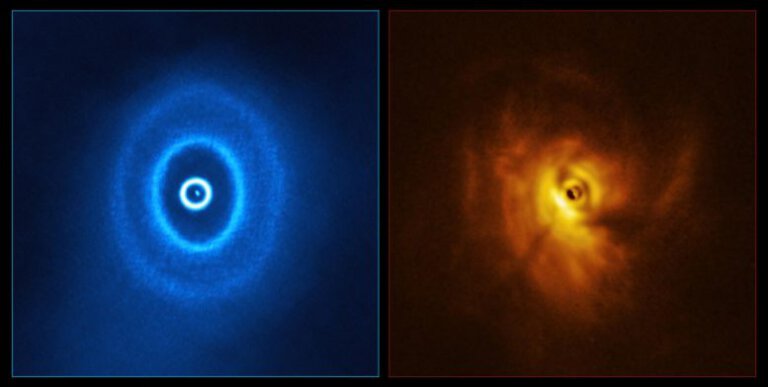

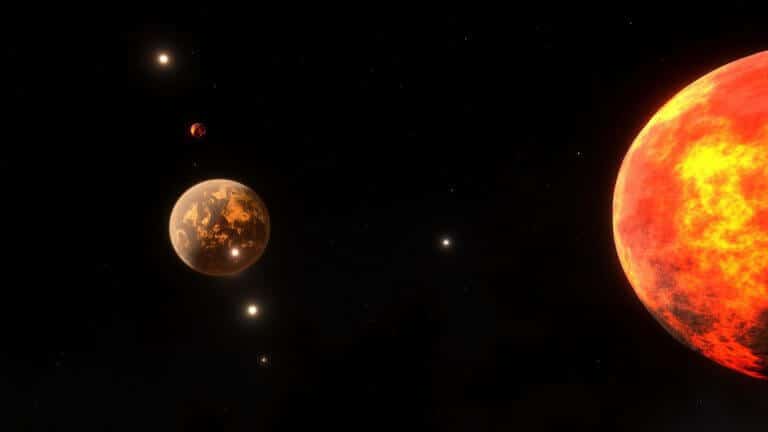
![The weathering process of silicate rocks is part of what is called the "carbon cycle" which preserves the temperature of the climate on the earth's surface for a long time. [Courtesy: © Universität Bern / University of Bern; Illustration: Jenny Leibundgut]](https://www.hayadan.org.il/images/content3/2021/03/Carbon-Cycle-Earth1-768x684.jpg)
